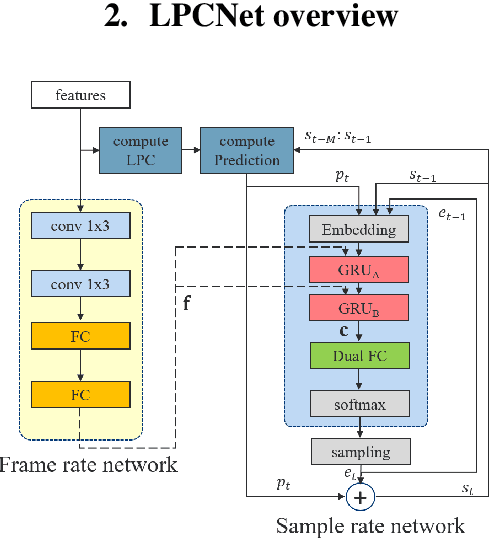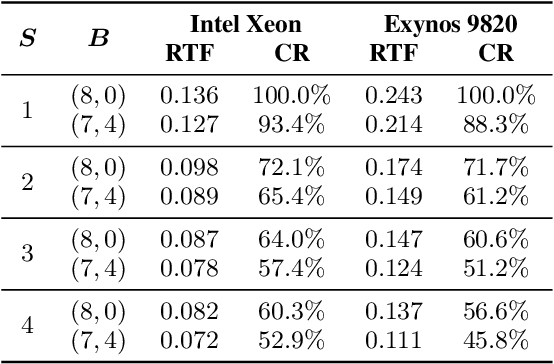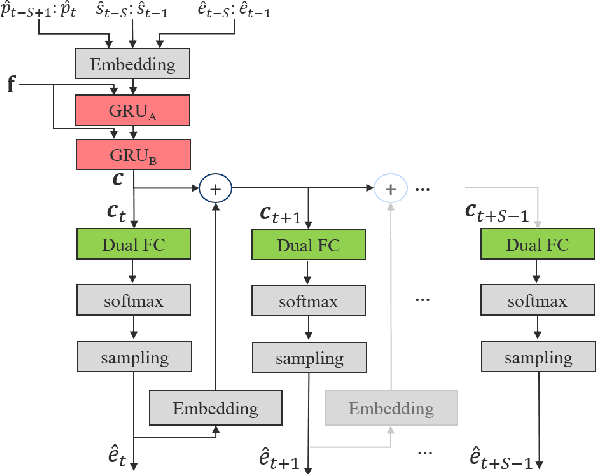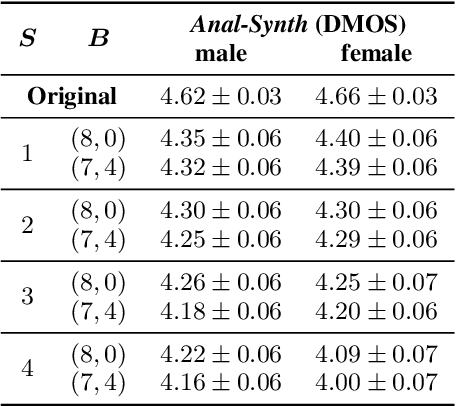Bunched LPCNet : Vocoder for Low-cost Neural Text-To-Speech Systems
Paper and Code
Aug 11, 2020



LPCNet is an efficient vocoder that combines linear prediction and deep neural network modules to keep the computational complexity low. In this work, we present two techniques to further reduce it's complexity, aiming for a low-cost LPCNet vocoder-based neural Text-to-Speech (TTS) System. These techniques are: 1) Sample-bunching, which allows LPCNet to generate more than one audio sample per inference; and 2) Bit-bunching, which reduces the computations in the final layer of LPCNet. With the proposed bunching techniques, LPCNet, in conjunction with a Deep Convolutional TTS (DCTTS) acoustic model, shows a 2.19x improvement over the baseline run-time when running on a mobile device, with a less than 0.1 decrease in TTS mean opinion score (MOS).
 Add to Chrome
Add to Chrome Add to Firefox
Add to Firefox Add to Edge
Add to Edge